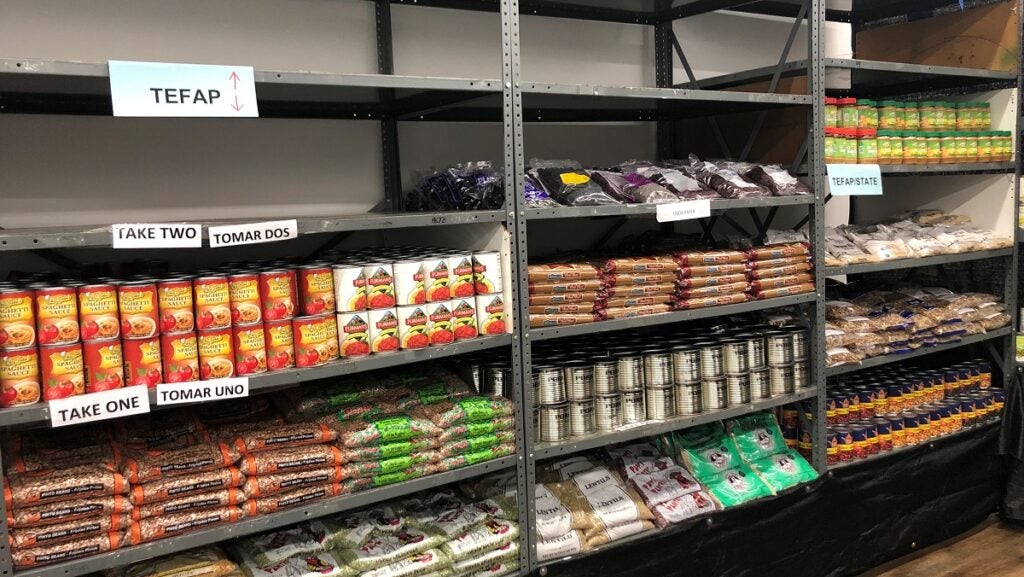
Helping food pantry clients make healthy choices

Catholic Charities USA (CCUSA) received a $1.4 million grant from the Walmart Foundation to reduce hunger among people struggling with poverty. While most of the funds supported outreach and enrollment for the Supplemental Nutrition Assistance Program at 47 Catholic Charities agencies in the United States, some of the funds paid for Catholic Charities food pantry consultations.
CCUSA contracted with Bonnie Faitak, healthy food systems project manager at the University of Arkansas for Medical Sciences (UAMS), to lead the consultations. She based her presentation on the UAMS program, “Improved Nutrition in Communities,” which includes information on how pantry design can support healthy choices for individuals and families who access some of their food at pantries. The overarching goal of the program is that every person can reach and maintain a better state of health, including people struggling with food insecurity or low incomes.
Four agencies received a pantry consultation from Faitak: Catholic Charities of the Diocese of Trenton, N.J.; Catholic Charities Omaha; Catholic Charities Bureau, Inc., Diocese of St. Augustine (Jacksonville, Fla.); and Catholic Charities of Portland, Ore.
At the consultation in Trenton, Catholic Charities staff from Trenton, Camden and Paterson were present. Participants learned that the top three components of a healthy pantry design are having written nutrition guidelines, using a “client-choice” distribution model, and having adequate refrigerated storage. While all three components impact pantry clients, the client-choice model does so most directly.
In traditional pantry settings, clients may hope to get some food they like or at least can use from the pre-packed bag they are given. But in a client-choice pantry, the options are more numerous and potentially more healthy.
To encourage healthy choices, pantry staff can move food items with greater nutritional value to the front of the space, bundle ingredients for a meal on a common shelf, and create signs that display the health benefits of the particular item. “Having a food sample available for clients to taste, along with the recipe and ingredients, is another way to encourage a healthy choice,” Faitak said.
A client-choice pantry offers an intangible benefit as well. “Having a client-choice pantry shows the clients that you care for them and respect them,” Faitak said. “You’re not just handing them a bag, but interacting with them and answering questions.”
The actual design of the pantry space garnered most comments as participants shared their takeaways from Faitak’s presentation. Anne Casale, business manager at the Mount Carmel Guild pantry in Trenton, said she was eager to convert to client-choice and was already planning to tap local medical schools for a nutrition education supplement to the pantry service.
CCUSA hopes to offer more pantry consultations in the future. Agencies that receive the consultation are eligible for up to $1,500 to implement recommendations. Any agencies within a particular region may participate in the consultation too. The hope is that each local convening stimulates broader changes in pantry design and product placement.








